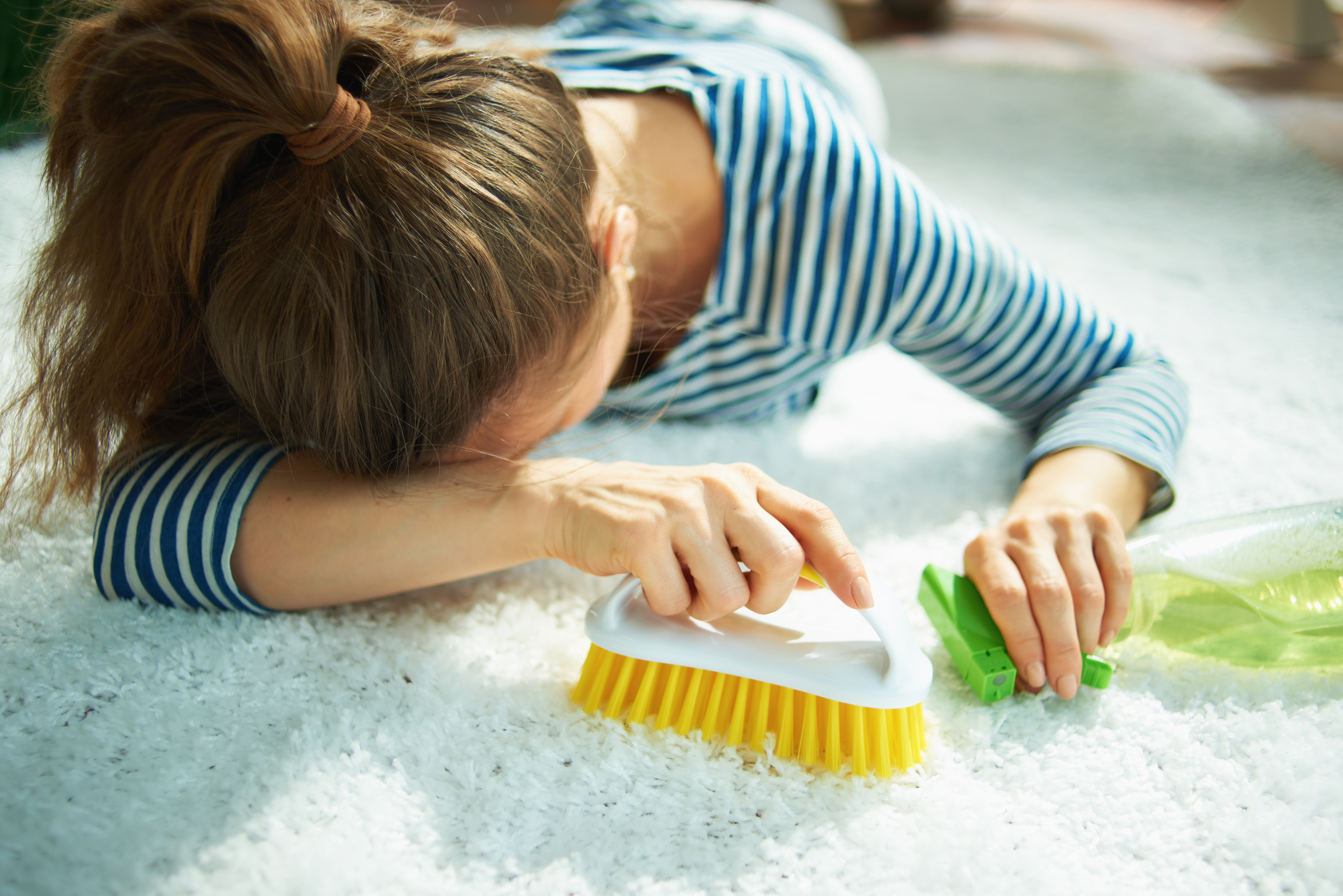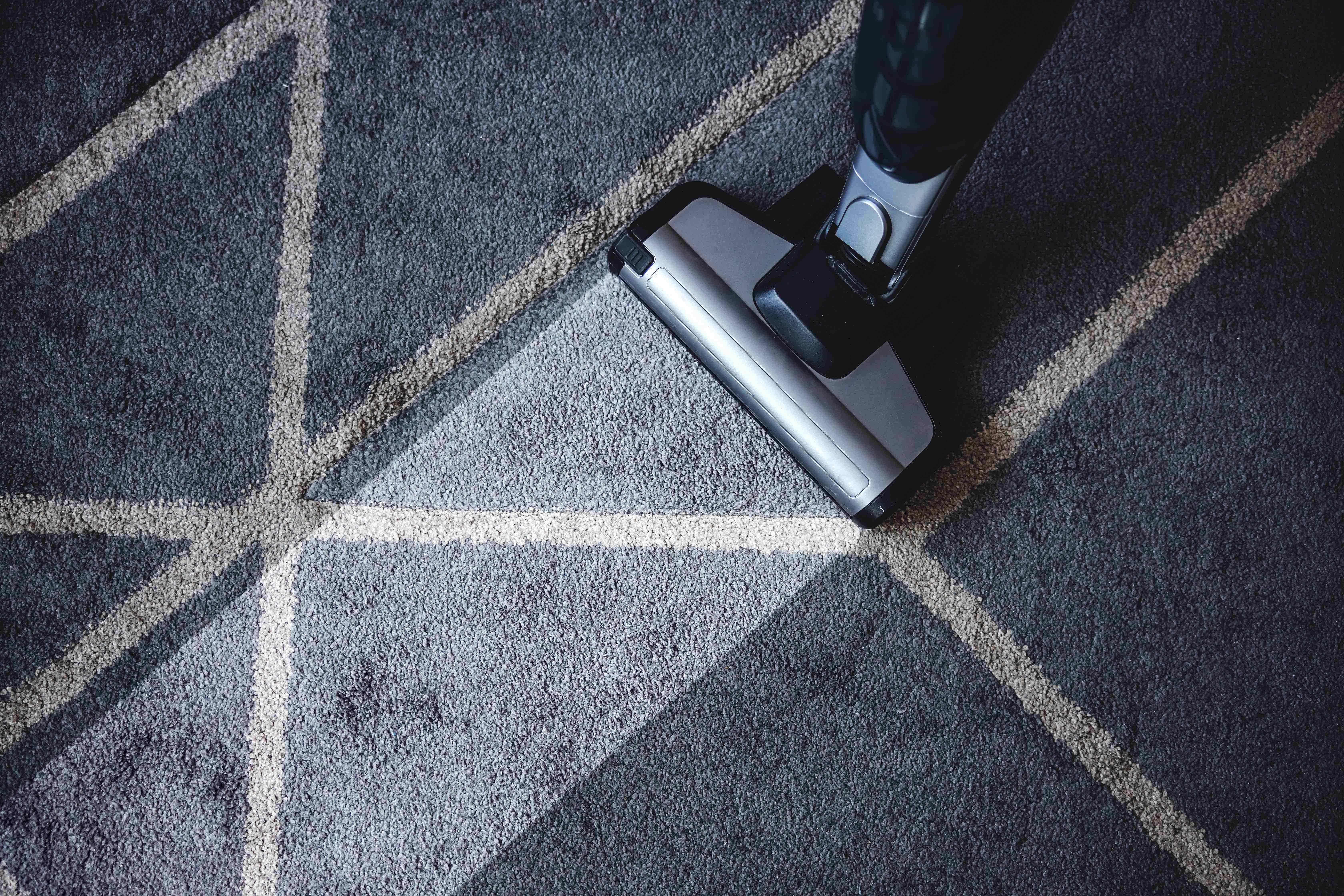What To Do With Discolored Carpet
Feb 13, 2023 11:24

Many homeowners invest in high-quality carpeting to improve their home’s interior. However, a carpet is only good enough as décor if you regularly maintain its cleanliness. Keeping a rug spotless is challenging if you have kids or pets at home. So, it’s not unusual to find it discolored from time to time.
Act fast when you notice your carpet not looking like it should. Discoloration comes from dirt and stains and can stick to the fibers long when ignored. But it's possible to get it back to its original color. Keep reading if your carpet requires cleaning, and you need help figuring out what to do. This article will show you how it's done.
1. Don’t Wet It Just Yet
Most people would use water to clean a dirty object. But the last thing you should do is moisten a discolored carpet while grime is still on it. Before you take it outside and hose it down, you must know the cause of the discoloration. If your carpet is already wet and you’re leaving it out to dry, you could experience the bane of browning. When this happens, it’ll be much harder to clean it on top of its other inner filth.
Some stains, like beverage spills, are water-soluble. You can spritz a little water on it and dab it away. Other issues like oil, urine, or mud take more time and care to remove.
What’s important is knowing what you’re dealing with before making the next move. If you think multiple factors are causing your carpet's discoloration, the first thing you should do is vacuum it.
2. Whip Out Your Vacuum
Vacuuming won’t ultimately solve your issue, but it’s a great start to returning your carpet to its former glory. People and animals walking on a rug often leave loose dirt and dust on it. A powerful vacuum can suck most of it and give you leeway for deep cleaning later.
Move your surrounding furniture out of the way to thoroughly vacuum every inch of your carpet. Take your time when doing this. Staying slow and steady will allow you to get as much loose, deep-seated grime as possible. You can use other tools, too, such as a squeegee and a lint roller, to easily remove crumbs or pet fur.
Carpet messes caused by oil stains or odors aren’t entirely immune to the vacuum either. Sprinkle some baking soda on affected areas and leave it for an hour or more. After that, vacuum the spot to get rid of the issue. When your carpet’s deep-cleaned, you can continue applying baking soda on it monthly to keep the colors fresh and vivid.
3. Do A DIY Spot Removal
Once you’ve cleared the loose dirt and fur, it’s time to do a spot removal treatment. Carpet stain removers are your go-to solution for this issue. You can find many brands of stain removers at varying prices. So, pick the one that suits your preferences and budget, preferably with a pH level of 10 or less. Otherwise, you can make a do-it-yourself (DIY) cleaning solution at home. All you need are distilled white vinegar, dishwashing liquid, water, and a spray bottle.
Mix one part vinegar with three parts cold water in the spray bottle. You can also make a cleaning solution with a teaspoon of dishwashing liquid and a quart of warm water. Do a test spritz on an inconspicuous area of your carpet first to check for bleeding or color change. Proceed with the following steps when you’re all in the clear:
• Spray the solution on the stain until damp and let it sit for five minutes.
• Blot the area with a microfiber cloth. Continue to rinse the cloth often to clean it.
• Repeat the process until the microfiber cloth doesn’t pick up any stains.
Different carpet stains require specific removal techniques. So, inspect your carpet and determine the reason for the discoloration. The spot removal method is easier if the problem involves a small area. If you have the budget, you can invest in carpet cleaning tools the professionals use to clean more significant stains.
4. Rinse And Air Dry
When the carpet has been cleaned until it looks almost brand new, you can rinse it with water. Remove any lingering soap or vinegar with a thorough rinse. Once no suds are in the water, you know your carpet has been well-rinsed.
After rinsing the carpet, let it air dry. For faster drying time, direct an electric fan toward the damp areas. It'll take about 6-10 hours for most carpets to dry up completely.
Inform everyone at home to avoid walking on the carpet while drying. Cover the carpet with transparent plastic sheets if it is located in a high-traffic area.
5. Let The Pros Handle It
In extreme cases, you might need to send your discolored carpet to professional cleaners. Baking soda helps remove deep-seated dirt but may lead to yellowing after a few days. Some stains are also much easier to remove with heavy-duty cleaning tools. So, don’t feel bad if you’ve done your best and got unwanted results. There’s still hope in rejuvenating your carpet.
Professional cleaners can do an extraction cleaning or an acid rinse for yellowed carpets. They could even repair damages for an additional fee. It’s not as affordable as cleaning it at home. But they’ll do better work to remove discoloration, odors, and stubborn stains and make your carpet fluffy and beautiful again.

Conclusion
Every carpet deserves to look like how it was the first time you got it. While soiling and discoloration are inevitable, your carpets can be restored to their original color. It just takes time, patience, and handy tools to make it beautiful again.







































































